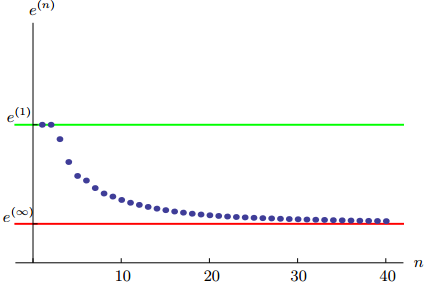Entanglement Makes Quantum Batteries Almost Perfect, Say Theorists
In recent years, physicists have amused themselves by calculating the properties of quantum machines, such as engines and refrigerators.

The essential question is how well these devices work when they exploit the rules of quantum mechanics rather than classical mechanics. The answers have given physicists important new insights into the link between quantum mechanics and thermodynamics.
The dream is that they may one day build such devices or exploit those already used by nature.
Today, Robert Alicki, at the University of Gdansk in Poland, and Mark Fannes, at the University of Leuven in Belgium, turn their attention to quantum batteries. They ask how much work can be extracted from a quantum system where energy is stored temporarily.
Such a system might be an atom or a molecule, for example. And the answer has an interesting twist.
Physicists have long known that it is possible to extract work from some quantum states but not others. These others are known as passive states.
So the quantity physicists are interested in is the difference between the energy of the quantum system and its passive states. All that energy is potentially extractable to do work elsewhere.
Alicki and Fannes show that the extractable work is generally less than the thermodynamic limit. In other words, they show that this kind of system isn’t perfect.
However, the twist is that Alicki and Fannes say things change if you have several identical quantum batteries that are entangled.
Entanglement is a strange quantum link that occurs when separate particles have the same wavefunction. In essence, these particles share the same existence.
Entanglement leads to all kinds of bizarre phenomena such as the “spooky action at a distance” that so puzzled Einstein.
Alicki and Fannes show that when quantum batteries are entangled they become much better. That’s essentially because all the energy from all the batteries can be extracted at once. “Using entanglement one can in general extract more work per battery,” they say.
In fact, as the number of entangled batteries increases, the performance becomes arbitrarily close to the thermodynamic limit. In other words, a battery consisting of large numbers of entangled quantum batteries could be almost perfect.
That’s a fascinating result. Quantum batteries in the form of atoms or molecules may be ubiquitous in nature, in processes such as photosynthesis. Biologists know for example that during photosynthesis, energy is transferred with 100 per cent efficiency from one molecular machine to another.
How this happens, nobody knows. Perhaps Alicki and Fannes’ work can throw some light on this process.
However, it’s worth pointing out some of the limitations of this work. It is highly theoretical and does not take into account various practical limitations that are likely to crop up.
Indeed they acknowledge this and say an interesting goal for the future will be to work out how practical limitations might change their result.
In the meantime, nanotechnologists can dream about the possibility of exploiting near perfect batteries in micromachines of the future and learning more about the way nature may have already perfected this trick.
Ref: http://arxiv.org/abs/1211.1209: Extractable Work From Ensembles of Quantum Batteries. Entanglement Helps.
Keep Reading
Most Popular
Large language models can do jaw-dropping things. But nobody knows exactly why.
And that's a problem. Figuring it out is one of the biggest scientific puzzles of our time and a crucial step towards controlling more powerful future models.
The problem with plug-in hybrids? Their drivers.
Plug-in hybrids are often sold as a transition to EVs, but new data from Europe shows we’re still underestimating the emissions they produce.
How scientists traced a mysterious covid case back to six toilets
When wastewater surveillance turns into a hunt for a single infected individual, the ethics get tricky.
Google DeepMind’s new generative model makes Super Mario–like games from scratch
Genie learns how to control games by watching hours and hours of video. It could help train next-gen robots too.
Stay connected
Get the latest updates from
MIT Technology Review
Discover special offers, top stories, upcoming events, and more.